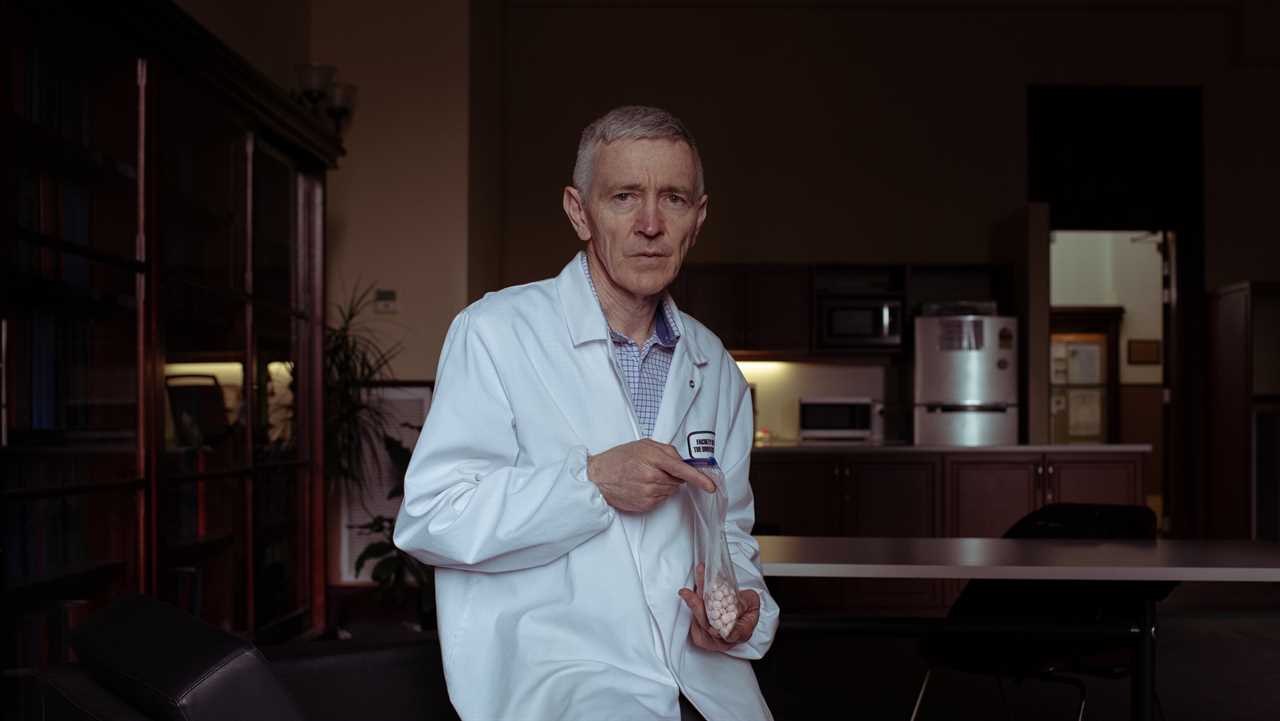
MELBOURNE, Australia — Having worked for decades as a physical therapist and a clinical researcher, Chris Maher knows firsthand how difficult it can be to treat back pain. The condition’s causes are often complex or uncertain, and treatments can be ineffective, even harmful.So when he learned that a group of researchers, including scientists at Harvard, were claiming that back pain could be relieved by prescribing placebos — pills with no active ingredient — he was concerned that the claims were exaggerated.“It all just seemed like snake oil to me,” he said.To Dr. Maher, a professor at the University of Sydney’s School of Public Health, this is just one example of a troubling trend in modern medicine. In recent years, an increasing number of researchers have made the case that placebos are effective not just in pharmaceutical trials — their most common use — but also in clinical treatments, prescribed to alleviate conditions like chronic pain, chronic fatigue, asthma and depression.When new drugs undergo clinical testing, some participants with a health condition are given the real remedy while others are given an inactive control — a placebo. Strangely, some of those given the placebo still report feeling better for various reasons. These are called placebo effects.Researchers have long been captivated by the phenomenon’s seeming potential in treating a range of ailments. In studies, they argue that placebos have notable, if poorly understood, healing effects even when patients are fully aware that they are taking inert pills. In surveys, doctors report wide use of placebos, especially for patients with complex conditions that have no clear treatment.But in a recent paper in the Medical Journal of Australia, Dr. Maher argues that the medical community has become enthralled with the idea of “enshrining placebos as mysterious and highly effective,” even with little evidence of their efficacy in clinical care.Much of the research, Dr. Maher says, has significant flaws that inflate placebos’ strength and reliability as therapeutics. These errors, he says, risk further entrenching the clinical use of placebos when proven treatments remain available, and encouraging entrepreneurs who are trying to cash in on online sales of placebo pills.“The idea that we can use placebos as a panacea for a range of health conditions is really problematic,” he said. “It is bad for science and bad for patients.”ImagePlacebo pills containing microcrystalline cellulose, which cannot be absorb by the body. To Dr. Maher, research on placebos has significant flaws that inflate their strength and reliability as therapeutics.Credit...Tony Luong for The New York TimesPerhaps the best-known effort to measure the power of placebos as a clinical treatment was undertaken by Henry Beecher, a pioneering American anesthesiologist. In the 1950s, he conducted a series of 15 trials, finding that 35 percent of 1,082 patients with a variety of conditions experienced pain relief from placebos.In the decades after Dr. Beecher’s trials, researchers investigated what caused this effect. Some proposed that it was predominantly psychological — an instance of mind over matter — while others found possible biological origins. Scientists discovered that naloxone, a drug developed for patients who overdose on opiates, partly prevented placebo effects, suggesting that the pain relief experienced after taking a placebo might be produced, in part, by activating opioid receptors in the central nervous system.By the time Dr. Maher was completing his training in physical therapy in the 1980s, Dr. Beecher’s trials were already ingrained in medical folklore, even leaking into popular culture.Dr. Maher recalls a M*A*S*H episode in which the medics fill capsules with sugar scraped from doughnuts to give to wounded soldiers after the morphine supply had run out. “Like everyone, I just accepted that it could actually work,” he said.His view changed after 2001, when two Danish researchers, Asbjorn Hrobjartsson and Peter C. Gotzsche, published a paper in the New England Journal of Medicine arguing that medical studies had exaggerated placebo effects. They identified what they said was a flaw in the studies’ designs: Many failed to compare patients who had received placebos against a control group of patients who had not.In such studies, the Danish researchers argued, it was impossible to know whether it was the placebo that was working or something else entirely, like natural healing. When they reviewed studies that did compare placebo groups to no-treatment groups, they found that the placebo effect more or less disappeared.The paper kicked off a debate about study design in placebo research. Dr. Maher, who was by then working in clinical research at the University of Sydney, was initially By: Oscar Schwartz
Title: Doctors Often Prescribe Placebos. But How Well Do They Work?
Sourced From: www.nytimes.com/2021/12/15/us/politics/placebo-effect-clinical-care.html
Published Date: Wed, 15 Dec 2021 10:00:16 +0000
Read More
Did you miss our previous article...
https://badpoliticians.com/us-politics/alejandro-mayorkas-homeland-security-secretary-tested-positive-for-coronavirus
 UK PoliticsWorld PoliticsVideosPrivacy PolicyTerms And Conditions
UK PoliticsWorld PoliticsVideosPrivacy PolicyTerms And Conditions
